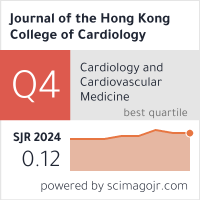Abstract
According to the diet-heart hypothesis, dietary factors play a pivotal role in atherogenesis. Modulation of the diet has therefore been considered a means to achieve better cardiovascular health and a major subject of public health importance. Five major types of diet have been identified: the low-carbohydrate diet, low glycemic index diet, very-low-fat diet, the Mediterranean diet and the Dietary Approaches to Stop Hypertension (DASH) diet. Clinical studies have shown that none of these diets are universally efficacious. The results from various clinical trials on the use of diet to prevent cardiovascular diseases are commonly conflicting due to unadjusted caloric intake and concurrent changes in alternative food consumption. Nonetheless, a diet rich in fresh fruits and vegetables with polyunsaturated fat intake from plant oil and fish, but restricted intake of high glycemic index carbohydrates is generally advisable. The importance of an individualized approach and holistic lifestyle commitments including regular exercise should be emphasized. Currently, there is limited data on nutritional supplements in heart health. Recent clinical trials have shown that vitamins C and E supplement are ineffective, and the use of high dose vitamin B and folate is actually harmful. Physicians should therefore be cautious in advising on and prescribing these supplements. Phytoestrogen represents a recently focused branch of nutritional supplement with potentially cardioprotective implications. Its recommendations should depend upon further randomized controlled trials.
Recommended Citation
Yap-Hang Chan, Hung-Fat Tse, Sheung-Wai Li, Chu-Pak Lau, A Systematic Review on the Role of Diet and Nutritional Supplements for Prevention of Cardiovascular Diseases Journal of the Hong Kong College of Cardiology 2005;13(2) https://doi.org/10.55503/2790-6744.1126
Creative Commons License

This work is licensed under a Creative Commons Attribution-Noncommercial-No Derivative Works 4.0 License.



